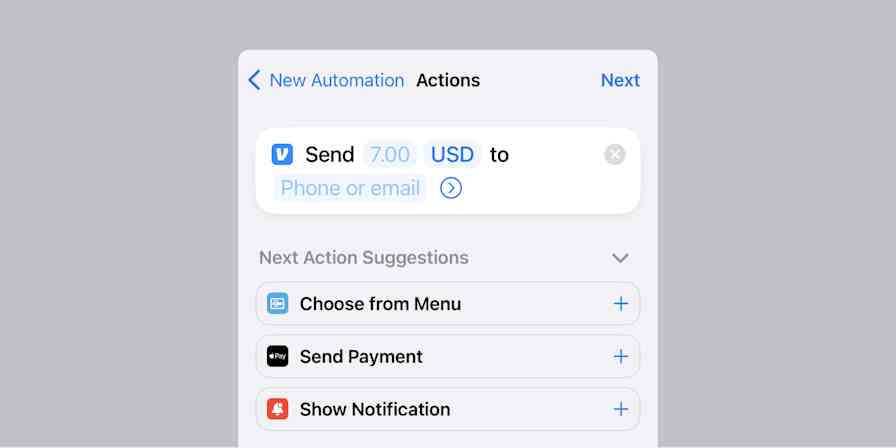My daughter has entered a yelling phase.
She's three, and very verbal, so it was a shock when all of a sudden she began to have explosive fits of yell/crying every time she was upset instead of asking for help or talking about the issue.
I'd like to say I met these tantrums with calm compassion and the tantrums stopped immediately and we walked off into the sunset. But… yeah, that didn't happen. Instead, her explosion triggered my anger, and the pattern went something like this:
While I'm getting my daughter out of her car seat, she starts screaming unintelligibly and crying.
"WHAT? REENA WHAT IS THE PROBLEM? WHY ARE YOU SCREAMING? STOP SCREAMING!" I scream at her.
More screaming and crying ensue.
"I CAN'T UNDERSTAND YOU WHEN YOU JUST SCREAM AND CRY AT ME!" I continue to scream at her.
She gets more upset, and now she's hitting me too.
We're all mad, and nothing gets resolved.
This pattern is no doubt familiar to parents, but similar things can play out at work. I work in customer service, and spotting patterns like this is just as helpful in my job as it is as a parent. Let's talk about why.
Past the point of being stressed
Dr. Stuart Shanker would explain Reena's yelling and screaming as stress behavior, which occurs when the self-regulating process, called the autonomic nervous system (ANS), kicks in.
These stress responses consume an enormous amount of energy, so the ANS has another mechanism to rapidly restore balance once the danger has passed…
Together these two systems continuously regulate every biological detail of a child's existence like breathing, eating, sleeping, studying and getting along with peers. But if this recovery mechanism is overused, and the signs that the individual needs to rest and restore are ignored, then the system can become strained and over time the first early signs of downstream physical, behavioural, attentional and/or mental health problems appear.
The brain's response to high energy demand is to shut down those parts that are not immediately necessary… The brain directs its energy to attend to the body's core needs—heart, respiration, thermoregulation, large muscle groups—and away from such things as the immune system, metabolism, the prefrontal neural systems needed for modulating impulses and strong emotions, and even the systems in the middle ear that detect the human voice.
So, logically, I know that when Reena is screaming and crying, she's already way past the point of being stressed—her brain is overloaded, and her ability to understand her emotions and control her reaction to those emotions is completely gone. It's not that she doesn't want to, or won't. She can't.
The scene from the car is actually going something like this:
While I'm getting her out of her car seat, Reena is struggling, overwhelmed, and one more thing triggers her stress response. Her brain is working beautifully: "Protect yourself," it says, "and I'll ring the alarms to signal that I need help." Screaming and crying ensue.
My brain hears the screaming and crying, and my brain is also overloaded. I feel attacked, helpless, annoyed. "Protect yourself," says my brain. "Fight back." And then I yell at her.
My yelling exacerbates her stress response, and her alarms continue to trigger mine. We are caught in a destructive cycle.
Their anger is not about you
I've worked in customer service for the past ten years. I'm well acquainted with angry customers. I've experienced the ALL CAPS ANGRY EMAIL and the in-person "let me talk to your manager" anger, and in all contexts, there's a common thread that I take comfort in.
This is not about you. Their anger is not about you.
Maybe I'm representing a policy or a faulty product or a long wait that becomes a trigger for their anger, but big emotional reactions to customer service issues are nearly always just the tip of the iceberg to a much more personal, long-lasting stress build-up that they're experiencing.
The most tactful customer service professionals understand this and can approach these situations with a firm but compassionate response. But it's not always easy.
Around the same time that Reena's yelling fits started, I started to have this weird feeling in my neck. It was full of tension—the feeling I get when I'm extremely nervous, anxious, or about to cry. Only, I didn't think I was feeling those feelings, and I couldn't cry. I just had this persistent lump in my throat. It got so bad that I had trouble talking and swallowing. I thought I must be getting sick but had no other symptoms.
A couple days ago, I couldn't continue ignoring it. I took off work and contacted my doctor.
Nothing was physically wrong with me, but I couldn't escape this feeling of imminent danger localized in my neck. I stopped trying to figure out why and instead focused on doing something that has helped me de-stress in the past: garden work. After several hours of weeding, I took a long bath and then a long nap.
The next day, my neck pain was almost completely gone.
I'm still not sure what triggered my body's alarm bells, but I know this: the body knows. The body keeps track of your stress and your worry and your anxiety, and it finds a way to make itself heard. The trick is to get your mind to listen.
Pay attention to your stress
When we hear a fire alarm, it doesn't make sense to get mad at the alarm for being loud.
Just like an angry customer's outburst, when my daughter is screaming and crying for no apparent reason, it may be that there is no single reason, but a build-up of reasons, a slow burn that is only now being surfaced. My job is to get her away from the fire and then become a detective to help find out what is causing that stress build-up. But if you've ever been on a plane, you know that in an emergency, you have to put your own oxygen mask on before you put one on your child.
If you're in the business of taking care of customers, this self-care and self-preservation are essential.
When my body is ringing an alarm, I need to pay attention. Even when it doesn't make sense, even when it's inconvenient. I need to set the conditions for rest and recovery so my brain stops thinking it's under attack.
The next time Reena's screaming fit occurs, I take a different approach. I recognize my discomfort. I take slow deep breaths. I pause before responding. I gently put my hands on her, and in a low voice, I tell her, "You sound so upset. I'm so sorry you're feeling this way." She continues to cry-babble. "Can you breathe with me?" I ask her. Together we take some deep breaths. "Let's wait till your body feels calm." I tell her. She leans into me, and we hug for a while.
"What's going on for you?" I ask her. In between crying, she tells me she wanted to play with a toy that her brother took first. We work on the issue at hand, but I've also turned on my detective brain. What's going on in our family right now? Has anything changed in her routine? How much did she sleep last night? When did she eat last?
When I'm working with customers who've gone over the edge, I employ the same strategy. How long have they been trying to get this problem solved? Have we set incorrect expectations? How could we have prepared them for this better?
I can't always find the smoking gun for a customer or my daughter right away, just as I can't always find it for myself, but I'll continue asking the questions. I'll continue listening to the body's signals and seeking to identify the small stressors which add up, and I hope that together we'll learn to read the signs earlier and create systems of prevention so the emotional emergencies happen less often.





